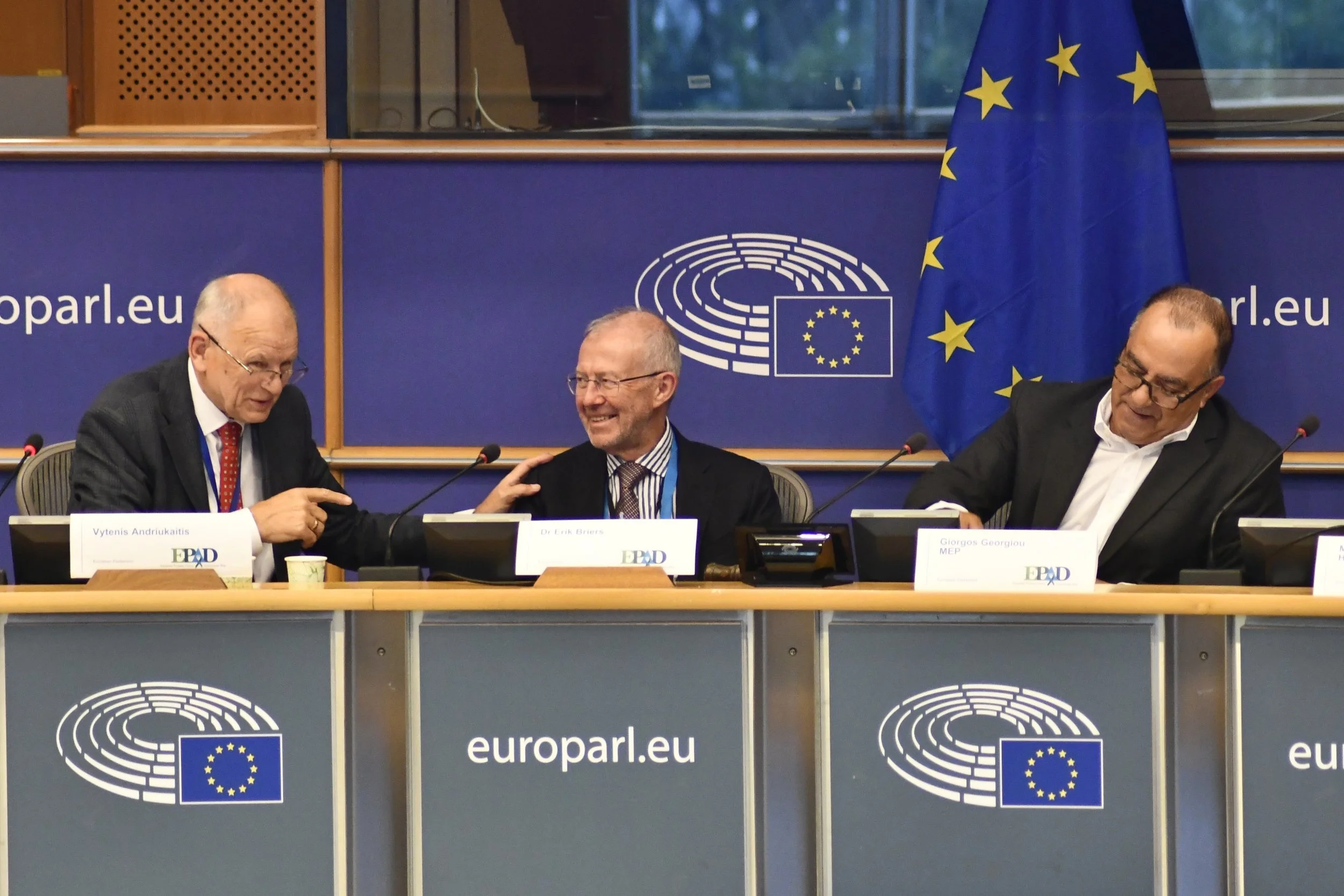Europe is taking the lead in early detection of prostate cancer: Let’s maintain the momentum
Brussels, 3 September 2025 - In the European Union, prostate cancer remains the most diagnosed cancer in men, with an estimated 330,000 new cases and 70,000 deaths each year. Diagnosis often comes too late for effective treatment, and the treatments available at that stage often have more serious side effects which can worsen the quality of life of those affected.
The good news: Advances in risk-based early detection using tools such as MRI now make it possible to catch the disease earlier, and EU-funded initiatives are testing the implementation of screening programmes for wider populations.
The opportunity: The upcoming negotiations for EU’s long-term budget for 2028-2034 can ensure research initiatives and cancer screening programmes continue to expand and advance, improving the lives of many more people.
The challenge: Getting decision makers in EU Member States to recognise the need for population-based cancer screening and supporting the adequate financing for the development of these programmes in the upcoming years.
On this year’s European Prostate Cancer Awareness Day (EPAD25) experts, policymakers, and patient advocates gather at the European Parliament to discuss how improved prostate cancer screening is turning the tide for men in the EU, how can we address the uneven access to lifesaving tools, and how can decision-makers reenergise European action against prostate cancer.
Amongst the agenda highlights:
Next year, the EU is set to release its latest report on cancer screening, with details on how the EU’s vision is being translated into national action. Furthermore, 2025 also mark an important milestone as the EU Council Recommendations on cancer screenings will be scrutinised and reviewed for their first time since their approval. The WHO International Agency for Research on Cancer joins the event to present the different ways it plans to use this report.
The EU co-funded PRAISE-U project has become a driving force to improve prostate cancer screening in EU countries. Project leaders, Prof. Hein Van Poppel and Prof. Monique Roobol, will present key progress and milestones achieved through PRAISE-U.
Representatives from Lithuania and Sweden - both members of the PRAISE - U consortium will share their experiences of their countries and the value of knowledge sharing.
“In the past, scientific evidence did not support the implementation of prostate cancer screening because of the harms associated with overdiagnosis and over treatment. Now we have better ways to assess risk, and we are able to see the damage caused by the current practice of no organised programmes. PRAISE-U provides the essential tools for EU member states to implement prostate cancer screening programmes in an organised way and to learn what works in their own countries.”
We have a good picture of what needs to happen, but we need sustained political support to make effective prostate cancer screening a reality for everyone across the EU.
The 2025 EU4Health programme is a chance to take the next big step in helping Member States move beyond pilot programmes, turning evidence into action, and keeping prostate cancer high on the political agenda. The upcoming initiatives from the European Commission and Joint Research Centre will be key drivers in making this momentum a reality.
Policymakers are taking notice.
“Our goal is to tackle all inequalities that exist among patients. Progress against prostate cancer will only be achieved if policymakers, healthcare professionals and patients representative work together to ensure health as a public and social good for all. We will continue the collective struggle to ensure equal access to screening, treatments and outcomes across Europe.”
“Early detection of prostate cancer is improving thanks to advances in science and research - but political willingness is also needed to turn pilot projects into real change for all men across Europe. I am committed to keeping this issue high on the agenda and to ensuring the necessary investment in the next Multiannual Financial Framework, as well as its implementation at the national level.”






